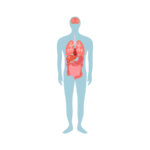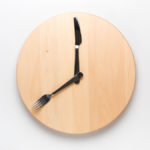By David Blyweiss, M.D., Advanced Natural Wellness
September 29, 2014
- Why aren’t you sleeping?
- The top 7 reasons to get your Z’s
- Here’s how to sleep your way to good health
When patients come into my office, they usually have some pretty specific health concerns. Their joints are aching. They’re fatigued. Some are worried about their memory; others are anxious about their heart health.
But there’s one thing many of them have in common… they aren’t sleeping well.
It’s not their fault. These days we’re all under tremendous pressure to “do it all.” As we pack more work and family obligations into the day, bed comes later and mornings come earlier.
Even if you get to bed on time, it can be hard to shut down all of the chatter going on in your brain. For some reason, it seems to be the perfect time to replay the day’s events, worry about the checkbook balance, or start making plans for tomorrow.
The Institute of Medicine estimates that somewhere between 50 and 70 million Americans are suffering from sleep disorders. And that’s far too many in my book. If you’re not getting a good night’s sleep, it opens the doors to many of today’s greatest health threats.
If you’re losing sleep every night, you probably don’t think of it as a health concern. That’s because the brain fog, sluggishness and fatigue that hits during the day consumes your focus.
MD Exposes the Hidden Danger to Your Eyes

When your eyesight starts to fail, it's a real problem. Suddenly you can't go to the grocery store... you can't get to the doctor if you have an emergency... you can't meet your friends for dinner…
Your "regular" doctor doesn't have time to keep up with the latest research. And the same goes for eye doctors. They go to school to learn how to fit you for glasses and contacts, but have no way of preventing the damage and loss of eyesight that threatens your freedom and independence.
Let me show you something that explains a LOT about how your eyes work.
In my FREE Special Report, I'll show you a HUGE, untapped resource for your eyes that safely and naturally restores clear, effortless eyesight.
Click here to get started...
But a loss of sleep leads to much more than fuzzy thinking. It can have a huge impact on your overall health. Getting less than the optimal amount of sleep can lead to…
Weight gain: While you sleep, chemicals and hormones that help control appetite are released. If you’re not sleeping soundly, those chemical messengers and hormones are disrupted, which can cause you to gain weight. Getting a good night’s sleep on a routine basis, however, may support a healthy weight.
Heart disease: People who get less than five hours of sleep a night are twice as likely to have high blood pressure and cholesterol compared to those who get seven or eight hours of sleep a night. They’re also more likely to experience a heart attack or stroke.
Diabetes: If you don’t get enough sleep, it can have an impact on your glucose metabolism and insulin response. All in all, it could increase your risk of diabetes by about 75%.
Shortened telomeres: Sleeping less than five hours a night is associated with shortened telomeres. Shortened telomeres open you up to an increased risk of many health issues, including heart disease, cancer, dementia and chronic inflammation. They’re also linked to a reduced lifespan. Longer telomeres, on the other hand, are associated with robust health and a longer lifetime.
Reduced testosterone levels: Skipping sleep reduces testosterone levels by the same amount as aging 10 to 15 years. In only eight days, sleeping five hours or less a night can reduce testosterone by as much as 15%.
Chronic inflammation: Sleeping less than six hours a night can result in higher levels of three inflammatory markers: Fibrinogen, IL-6 and C-reactive protein. Each of these compounds has been implicated in heart disease, stroke, cancer, Alzheimer’s and other inflammatory diseases.
Alzheimer’s disease: The less sleep older people get, the more chances they have of developing age-related brain atrophy, beta amyloid deposits and cognitive decline. All of these increase your chances of developing Alzheimer’s.
The World's Quickest Solution for Ending Prostate and Urinary Misery
This has recently been revealed to be one of the only real breakthroughs in prostate health.
The seeds of a strange fruit (sometimes called "Chinese Apples") hold powerful phytonutrients that are a revolution in prostate health.
In fact, UCLA and Veterans Administration research have now proved this to be true.
Not only that, but it may be the worlds quickest solution for ending prostate misery.
Simply stated, these phytonutrients represent a huge step beyond beta sitosterol, saw palmetto, and other phytosterols alone.
Simply click HERE if you want to have fast prostate relief...restful, uninterrupted sleep...no more constant "urges to go"...enhanced virility...and optimal prostate support for life.
If you’re not getting enough Z’s, this might all sound a little bit scary. But don’t worry. I have just the solution for you…
There’s a natural supplement that tells your body when it’s supposed to sleep. It’s called melatonin. And it really works great when it comes to re-setting your natural sleep pattern. So, if you find it hard to get to sleep – or to wake up on time – it’s the perfect solution.
Now you might have tried using melatonin before. And I’ll bet the Sandman came pretty quickly after taking it. That’s how it’s supposed to work. The only problem with most melatonin supplements is that they work for about three hours, then your eyes pop open again.
Thanks to modern science, we’ve learned how to get around this problem. Now you can find melatonin sleep aids that are time-released.
This is great news for you, because it can put you to sleep quickly – and let you stay asleep all night long. Better yet, you won’t wake up groggy like you would if you took a prescription or over-the-counter sleep remedy.
Since melatonin is a hormone, I suggest using it only on a short-term basis… just until you’ve re-established your natural sleep/wake patterns.
Look for a formula that contains about 4 or 5 mg. of time-released melatonin. It should also include a few herbs that have been proven to help you sleep soundly.
For example, valerian and hops can help you sleep longer, and more deeply. And they do it naturally. Lemon balm is great, too, because it produces a calming effect.
Sleep well… sleep long… and be all the healthier for it!
References:
Taheri S, et al. “Short sleep duration is associated with reduced leptin, elevated ghrelin, and increased body mass index.” PLoS Med. 2004 Dec;1(3):e62.
Grandner MA, et al. “Habitual sleep duration associated with self-reported and objectively determined cardiometabolic risk factors.” Sleep Med. 2014 Jan;15(1):42-50.
Grandner MA, et al. “Sleep disturbance is associated with cardiovascular and metabolic disorders.” J Sleep Res. 2012 Aug;21(4):427-33.
Knutson KL, et al. “Associations between sleep loss and increased risk of obesity and diabetes.” Ann N Y Acad Sci. 2008;1129:287-304.
Jackowska M, et al. “Short sleep duration is associated with shorter telomere length in healthy men: findings from the Whitehall II cohort study.” PLoS One. 2012;7(10):e47292.
R. Leproult, et al. “Effect of 1 Week of Sleep Restriction on Testosterone Levels in Young Healthy Men.” JAMA, 2011; 305 (21): 2173
Alanna Morris, et al. “Abstract 17806: Sleep Quality and Duration are Associated with Higher Levels of Inflammatory Biomarkers: the META-Health Study.” Circulation 122: A17806
Lo JC, et al. “Sleep Duration and Age-Related Changes in Brain Structure and Cognitive Performance.” Sleep. 2014;37(7):1171-1178.
Spira AP, et al. “Self-reported Sleep and β-Amyloid Deposition in Community-Dwelling Older Adults.” JAMA Neurol. 2013 Dec;70(12):1537-43







how about drinking beer in the evening (hops…)